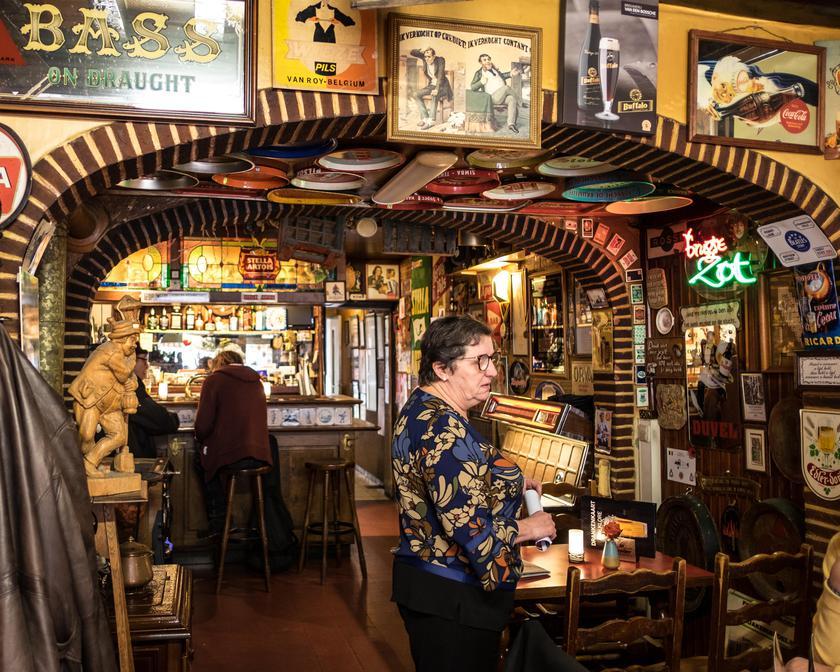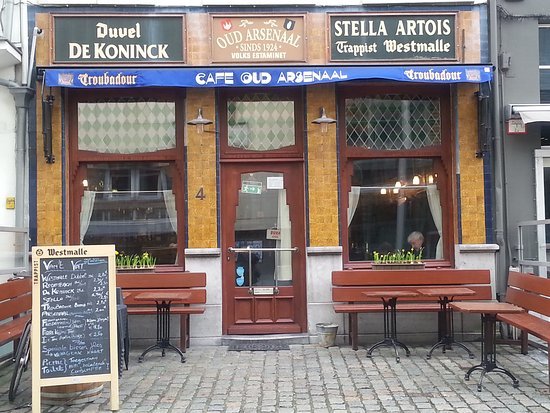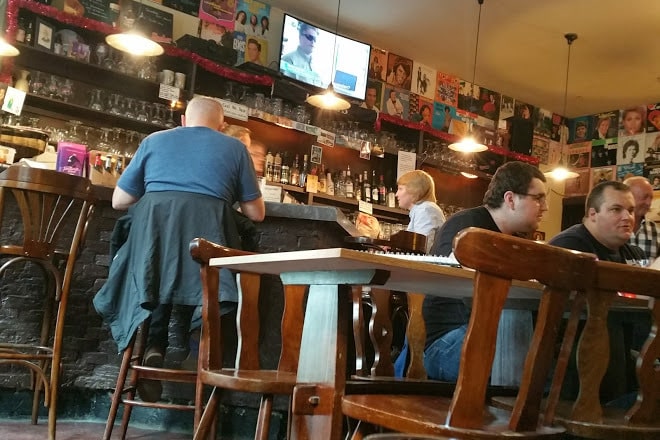Old-fashioned pubs where locals gather to enjoy a drink. Flemings call them volkscafés (people’s cafés) or bruine kroegen (brown cafés). But these genuine cafés, so typical for Flanders, are a dying breed. Derek Blyth urges you to visit them, while you still have the chance. ‘These cafés are part of the fabric of Flanders.’
The Flemish café is a special place. You push open the door to find the café filled with regulars drinking Belgian beers served in the correct glasses. They are talking in a local dialect you don’t understand. The walls are a dark brown colour that suggests smoking might still be permitted.
These places sometimes seem a little forbidding. But that’s just the way they look. You find a seat and ask for a drink. Maybe a coffee if there is coffee. Or a beer, something strong, a Duvel or a Westmalle, even in the morning, if you want to blend in with the locals.
 Café Folklore in Ghent
Café Folklore in Ghent© Visit Gent
Many of these traditional cafes are located in the front room of a house. The interior decorated with wood-panelling, a tiled floor, some mirrors along the wall, a row of tough green plants on the window sill, blocking out the light.
The toilet might come as a shock. It is often down a dark corridor, past the kitchen where something is simmering in a pot. WC, the sign will say. And it might be just a single toilet where the women have to squeeze past the men’s urinals to reach a cubicle at the back.
 Café Oud Arsenaal in Antwerp
Café Oud Arsenaal in Antwerp© Tripadvisor
Each café has its own history. You can sometimes piece it together from the old photographs hanging on the walls, or the collection of ornaments on a high shelf, or the row of shiny trophies in a glass case. They are part of Flanders heritage, even if they never receive a cent in government aid.
The old cafés often serve as meeting places for local associations. Possibly a cycle club, or a group of pigeon fanciers, or a football supporters club. Locals go there to play cards on rainy afternoons, or perhaps a game of skittles in the back yard, or to drown their sorrows after a funeral.
It might be a couple in charge. Or the café might be run by a woman while her husband is off working somewhere else. The owners have to be tough to deal with difficult customers. They have to work long hours to earn enough to live. It’s hardly surprising they aren’t always the most cheerful of people.
 Volkscafé Sint-Jakobs in Bruges
Volkscafé Sint-Jakobs in Bruges© Bruno O.
Sadly, the old Flemish cafes are slowly dying out. Young people aren’t interested. Some cafés have been turned into hipster coffee bars. Others converted into apartments. Often all that remains is the faded name on the wall. Café Welkom. Bij Maria. De Kroon. Sometimes not even that.
So you should visit these old cafés whenever you get the chance. Order a coffee if there is coffee, or a strong beer, if you want to blend in. These cafés are part of the fabric of Flanders. More important than you think.












